Lagos
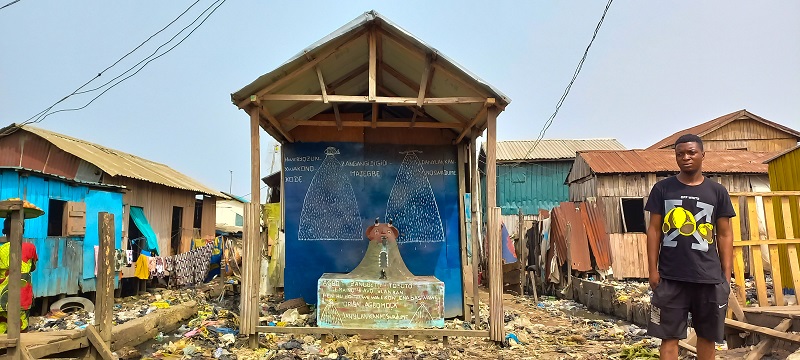
Shrine, brought by Benin Republic migrants to Lagos.
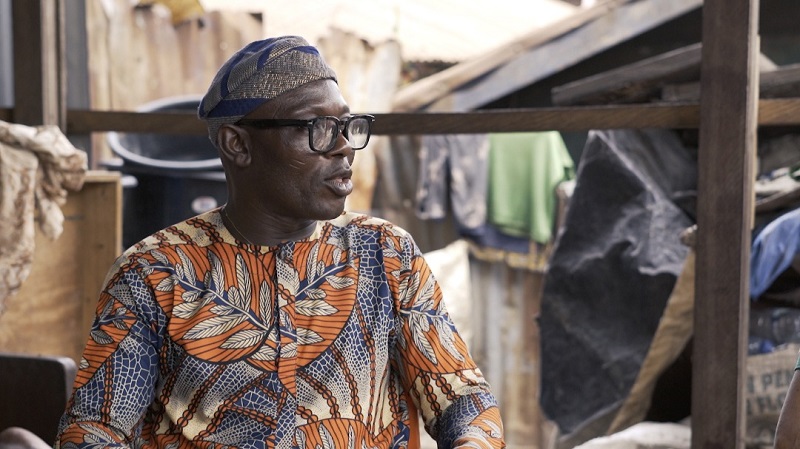
Migrants at Ajegunle, Lagos
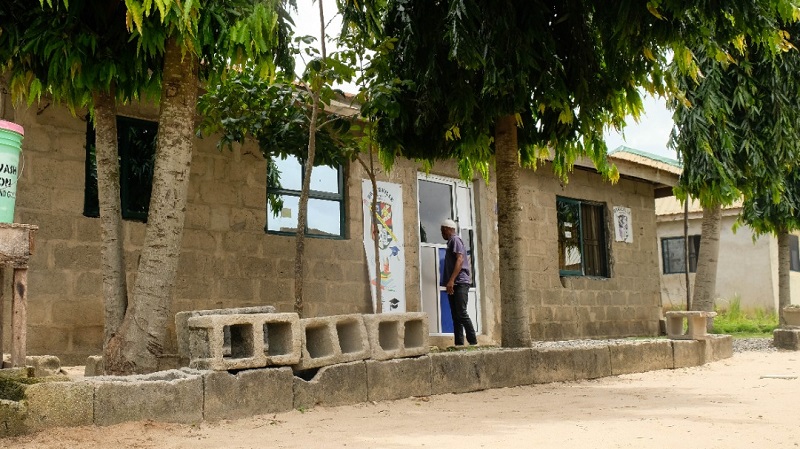
Apapa, Lagos
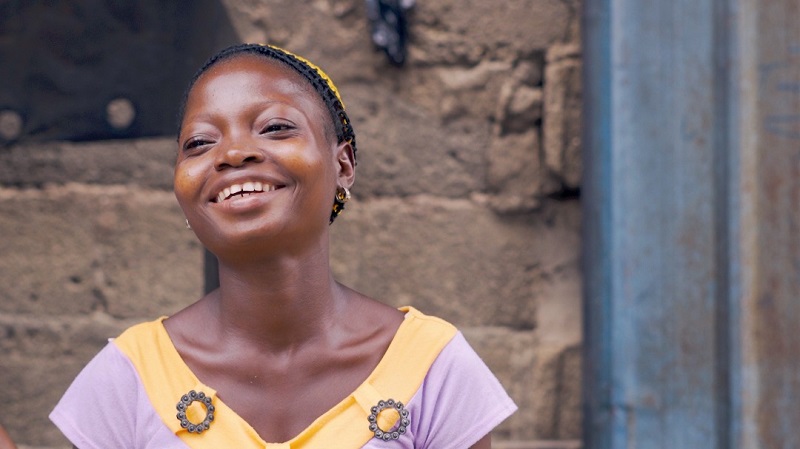
Ajegunle, Lagos
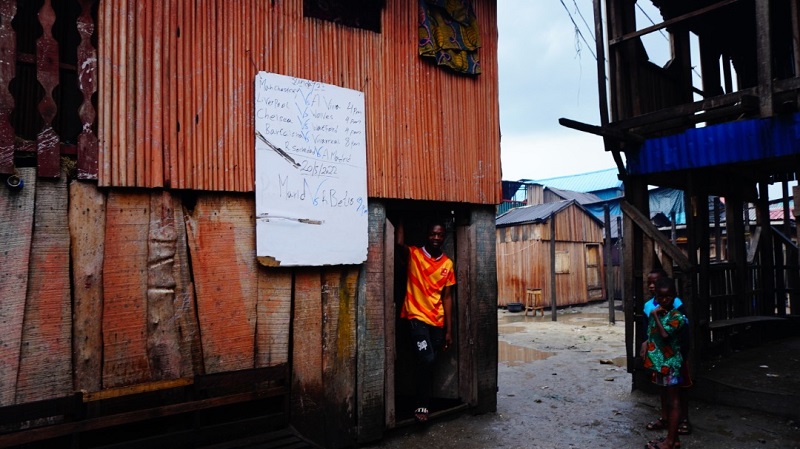
Makoko Community, Lagos
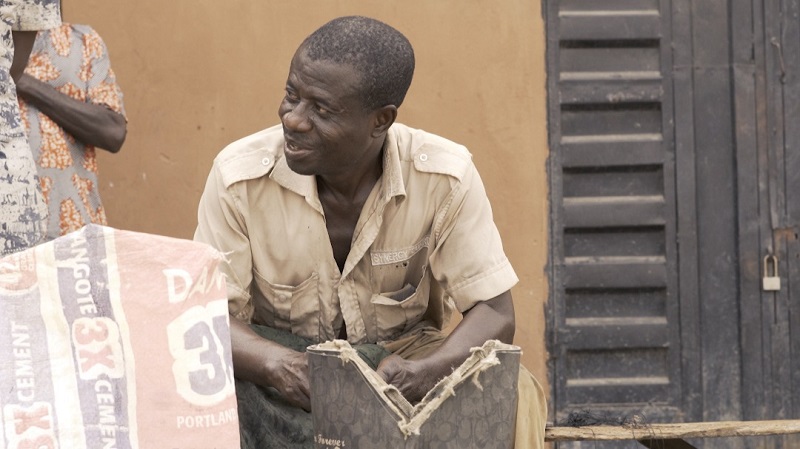
Migrant from Ghana in Lagos
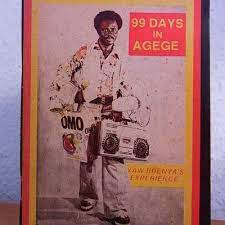
99 Days in Agege, the story of a Ghanaian in Lagos
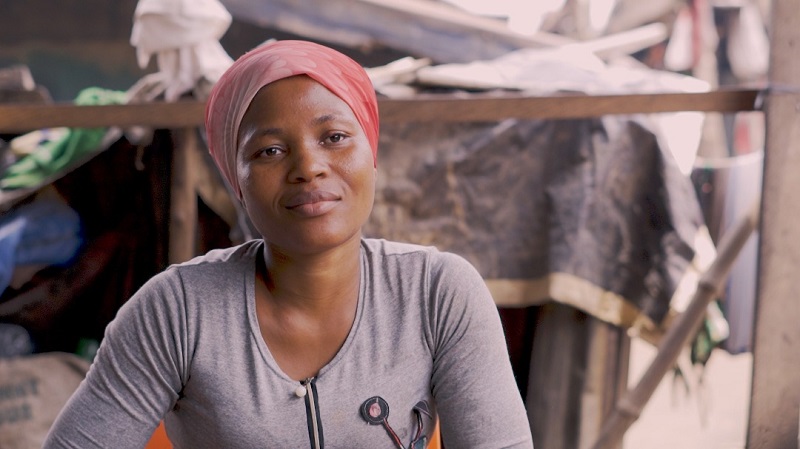
Some migrants at Ajegunle, Ikorodu, Lagos
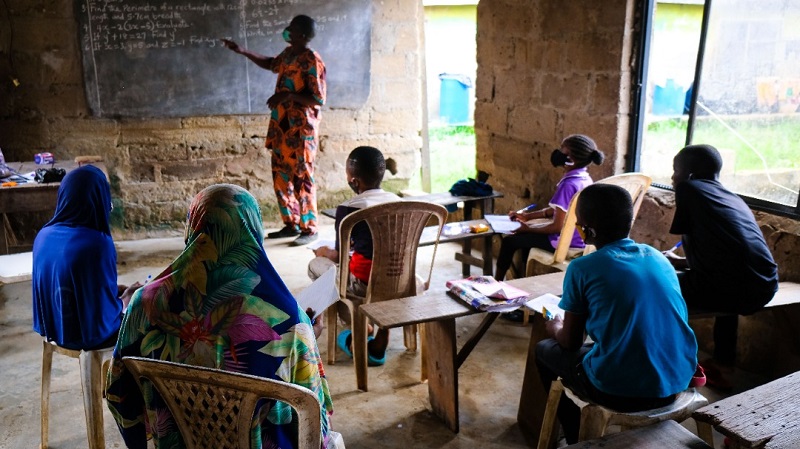
Ajegunle, Ikorodu, Lagos
Lagos City Profile
Introduction
Demographic, Economic, Social and Cultural Characteristics
Lagos, the most populous, largest metropolitan area and urbanized State in Nigeria (World Population Review, 2021) has a landmass of approximately 3,577sqkm, of which waterbodies constitute 22%. The metropolitan area originated on islands, including Lagos Island, that were protected from the Atlantic Ocean by sand pits. The city has expanded onto the mainland west of the lagoon, however, with Ikeja, the capital city of Lagos, and Agege over 25 miles northwest of Lagos Island. Lagos has enjoyed a tremendous growth, reaching 21 million from just 1.4 million as recently as 1970 (United Nations, 2018). The population density of Lagos is approximately 4,907 people per square kilometer; however, this could be as high as 20,000 people per square kilometer in the densely populated areas of the metropolis.
Lagos is the melting pot for Nigerians and other Africans, especially from the western region of the continent. This is largely because the city is Nigeria’s hub for commerce, fashion, industry and innovation. Its prosperity has been hinged on its coastal location, where it serves important port functions for the country and the West African region. Lagos has a GDP of $136.6 Billion (≈ 26% of Nigeria’s GDP) which makes it the 4th largest city economy in Africa. It is expected to overtake Johannesburg as the second largest economy in the continent by 2035 (Jacobs, 2018; Lagos Resilience Office , 2020). The GDP of Lagos is equivalent to the 5th largest country GDP in Africa, of which the formal sector contributes 66% ($90 Billion) and the informal sector 33% ($46.6 Billion) (Lagos Resilience Office , 2020). The state generates Nigeria’s largest value-added tax (VAT) revenue with a total revenue of N96.26bn between January and October 2020. The state’s total internally generated revenue (IGR) was N204.51bn as of H1 (i.e., January to June) 2020. Its federation account allocation committee (FAAC) revenue was N149.89bn as of October 2020 (Proshare Research, 2021). Available data shows that the state depends more on its internal revenue sources than its federal allocations which points to strong internal fiscal stability and higher thresholds for fiscal shocks.
Lagos State has five administrative divisions: Ikeja, Badagry, Ikorodu, Lagos Island, and Epe (IBILE), which are subdivided into 20 Local Government Areas (LGAs) and 37 Local Council Development Areas (LCDA), making a total of 57 Local Authorities. Administrative structure of Lagos consists of the three arms of government which is similar in all states in Nigeria. This consists of the Executive (council chairman and appointed departmental heads), Legislative Council (elected councillors representing administrative wards) and Judiciary (magistrate court). These branches have statutory responsibilities and autonomy as well as budgetary allocations directly allocated to them under the various enabling laws of the State.
Lagos being a multicultural city, the historical and cultural traditions of the State is very robust and rich. This can be seen through the variety of festivals that happen all year round. These include the Egungun Festival, the Zangbeto Vigilante Raffa Masquerade of Badagry, Ebi Festival, Eyo Masquerade of Lagos Island, the Eluku festival of Ikorodu, Gelede, Igunnuko, Kori, Boat Regatta and Ofa. Worship deities include Sango (God of Thunder), Ogun (God of Iron), and Olokun (the River Goddess), who is worshiped by the riverine communities.
Socio-spatial Identification of West Africa Migrant Enclaves in the City
One of the major factors that contributes to the population growth in Lagos State, is migration. Apart from the migrants moving in from other parts of Nigeria, there are others that migrate from West African countries like Benin Republic, Ghana, Togo, Ivory Coast, Burkina Faso, Senegal, Mali, Niger, Sierra Leone, Guinea, Guinea Bissau, The Gambia and Liberia. These migrants have enclaves or settlements in communities like Pelewura, Oja Oba, Hawley, Maza-maza, and so on in the following local governments – Amuwo Odofin, Lagos Island, Agege, Kosofe, Apapa, Badagry and Ibeju-Lekki. The migrants are mostly young single men, although young women have started migrating to the city as well. The female gender are mostly married women who followed their husbands from their countries to Lagos. The major work they involve in are construction jobs, trading and hawking (especially food and clothes), and other menial jobs available in the city
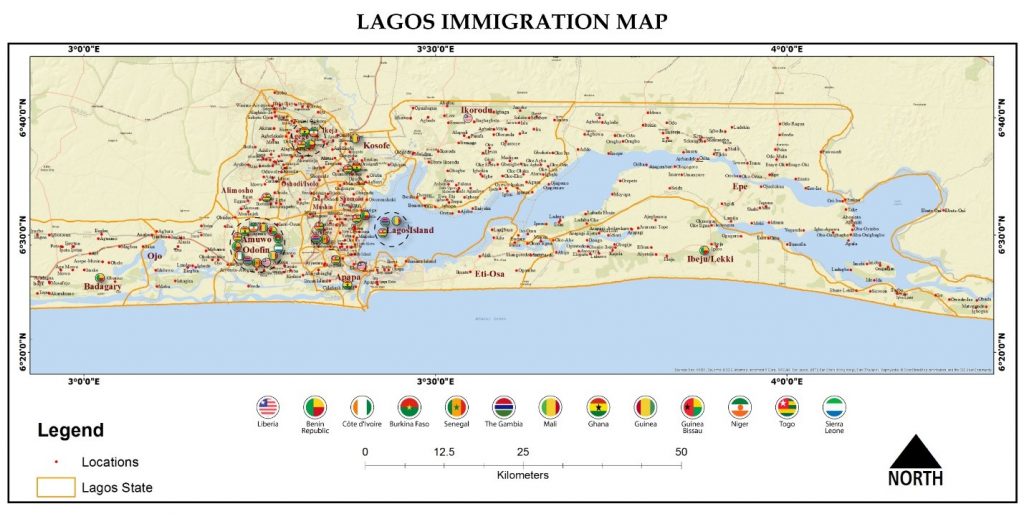
History of Lagos migrants to the city
The migration into Lagos dates back to the 1830s when many emancipated Africans from countries, including Sierra Leone. Many of them returned to Lagos due cultural, missionary and economic reasons and they resided in the Lagos colony – Olowogbowo, Ebute Metta and Yaba. Another notable history of migrants in Lagos (and Nigeria as whole) is the oil boom of the 1970s, the migrants were mostly from Ghana, Togo and Benin Republic. They settled in settlements like Magodo, Ajah, Oja Oba, etc. The migrants settled in the city until the January, 1983 when an executive order was enacted by President Shehu which forced undocumented immigrants to leave the country or face arrest. Shagari (source?).
MIGRATION TRENDS AND MIGRANTS’ CHARACTERISTICS
Lagos state, one of the fastest growing cities in the world and the most populous city in Nigeria. The city has a rapid urban growth rate and one of the reasons for the population increase is migration, both internal and cross-border. There are factors that drive the migration – both immigration and emigration.
Key Factors driving Migration and General Cross-Border Mobility
Lagos is one of the biggest metropolitan areas in Africa and plays a pivotal role in the economy of Nigeria. It remains the nation’s commercial nerve center and the focal point of economic activities. The GDP of the state accounted for 26.7% of Nigeria’s total GDP and more than 50% non-oil GDP. The state is home to major financial institutions, construction companies, tech companies and many more. This advantage has attracted many migrants in search of employment and opportunities in “greener pasture”. The booming economy and varied opportunities in the city have been a major factor for many immigrants in the city.
Ironically, despite the high Gross Domestic Product of the state, Lagos is terrorised by social and economic challenges like extreme poverty and high rate of unemployment. A United Nations Report pegged that 80% of the people in Lagos live in poverty and according to the Lagos state Bureau of Statistics, the unemployment rate in the state is 15%. Lagos has a vibrant youthful population and the rising incidence of educated unemployed young people in the city has giving rise to the new trend of “japa” meaning fleeing the city or the country. This phenomenon has increased the level of emigration in the state with people looking for ways to go to other countries to fully utilise their capacity and ability.
Some of the migrants in the city sees Lagos as a transit city – a gateway or stop on their way to other countries. They believe that Lagos state is a viable city to work and hustle to save money to travel to their destination countries like Canada, France, United States of America and others. It is their beliefs that processing visas to these countries from Lagos is also an easy task and a surer way of achieving their goals.
Other factors that contribute to migration in Lagos state include education, most emigrants out of the city leave for education purposes due to the several hiccups in the education system in the country, generally. Others migrate to Lagos as 2nd or 3rd generation migrants, meaning they have families already living and working in Lagos and they were advised to come work here or to escape depression and austerity in their country of origin.
Immigration and/or Emigration
Although, there is no statistics on the number of immigrants in Lagos but according to the former Governor of the state, Akinwunmi Ambode, he opined 86 migrants enter Lagos every hour from other parts of the country, continent and the world which is the highest number of daily record of immigrants in the world. Majority of the migrants into the city are from within Nigeria, searching for better jobs and improved standard of life. Other international migrants are from neighbouring West African countries, however some migrants come form United States of America, China and United Kingdom, being employed by foreign business operating in Lagos. Some migrants moved to Lagos, involuntarily as a result of a disaster or conflict.
On the other hand, according to a report published by the Africa Poling Institute in 2021 – 7 out of 10 Nigerians are willing to leave their country if given the opportunity. The emigration from Nigeria, Lagos specifically is to escape poverty in the city and go to countries with more opportunities to offer. Other reasons include education purposes, medical reasons and escape from the rising rate of kidnappings and violent crimes in the city. Report shows that these emigrants move to other African countries, Canada, USA, UK, China and other European countries.
Irregular Migration
Irregular migration includes those that leave or enter the city through illegal routes without going through the proper documentation. Most of these illegal journeys are done via water or through the thick and dangerous forest at the borders. Irregular migration tends to fester in the face of economic adversity. Most of the youth in the city embark on very risky journeys across the globe motivated by economic reasons, family dynamics and social media influence with the belief that “the end will surely justify the means. There has been reports of illegal passengers’ movement from one West African country to the other on the Gulf of Guinea. This has also resulted in increased in crimes like piracy, kidnapping, smuggling, human trafficking and many along the coast line. Also, there are those that enter the city illegally.in 2017, 84 illegal immigrants from Burkina Faso, Ivory Coast and Niger were arrested by the Lagos State Police Command. These immigrants were journeying on the water with the promise of finding greener pasture in Lagos.
KEY MIGRATION LINKAGES
The dominant population that migrates in and out of Lagos is the youth – both young men and women. Most of them are married but in some situations most of their wives and children are left in the country of origin while the husband moves to Lagos. Their main purpose of migrating from their countries is to boost their economic prowess and have the capacity of providing for their families at home. Also, some migrants came to Lagos on a temporary basis for the sole purpose of trading their products in the several markets in the city. It was observed that majority of them came at the behest or request from someone who has been living in Lagos for a while, probably father, aunts, uncles and most times close friends. They travelled by road using public transportation and were not require to show any form of travel documents at borders but most of them have their voter’s card and passport from their country.
Also, the movement of people from Lagos to other countries has been on the rise due to factors like economic purposes, education, family dynamics, escape from poverty and degradation and escape from violent crimes. The emigrants move to other West African countries, African countries and countries in other continents in search of their “Eldorado”.
The table below shows the migration linkages from Lagos to other countries.
West African Countries | Other African Countries | Other Countries in the World |
Benin Republic | South Africa | Canada |
Ghana | Kenya | United Arab Emirates |
Togo | Libya | United Kingdom |
Mali | Cameroon | Ireland |
Burkina Faso | Chad | Italy |
Senegal | Sudan | Spain |
Ivory Coast |
| Germany |
Sierra Leone |
| Netherlands |
Senegal |
| France |
Niger |
| United States of America |
Liberia |
| Australia |
Migrant Enjoyment of Right
Lagos has always been regarded as “a no man’s land”, which means that the city is open to all and sundry. The implication of this statement is that the migrants in the city enjoy some of the benefits the city has to offer. They compete with citizens in access to education, available jobs and housing. Most of them get married to Nigerians and settle in different enclaves in the city to live comfortably among their own people. They do not have voter’s card but there are claims that some of them are being used illegally by some political parties to gather votes on election days. Majority of them have been able to properly integrate themselves in the society by adopting local names for themselves and their children, eating local foods and wearing local clothes.
Recognition and/or Implementation of ECOWAS protocols
The ECOWAS protocols stipulated that among other things the right of community citizens to enter, reside and establish economic activities in the territory of member states and outlined a three-phased approach to achieve the complete freedom of movement of people and goods. The aim of the protocol is to fast-track economic integration and development in the sub region. The protocol is recognised in Nigeria and even in 2019, the Minister for Foreign Affairs calls for its implementation. But in reality, the movement from other West African countries into Lagos has been faced with some bottlenecks which affects the free movement. The passengers often complain about several challenges like border closure, excessive charges by the extortion by border officials, goods seizure, and many more.
IMPACT OF MIGRATION
The impact of migration in Lagos varied from social, cultural, political and economic effects, both positively and negatively. It enhances the lives of individual migrants and their families; it transforms their countries of origins where migrants send money home to build houses and establish businesses. There is also room for contributing to Lagos through investment, transfer of technology and skills, promotion of trade and business links. Some Lagos citizens trade across West Africans countries such as Ghana, Benin, Côte d’Ivoire, Senegal, the Gambia and Cameroon. Most of them establish temporary residence in these countries from where they undertake business trips to Lagos. Their business ventures in Nigeria make considerable contribution to the local economy by providing a wide assortment of goods and services. Also, the impact of social integration through developing ethnic enclaves around the city, learning new languages and imbibing new culture among others. On the other hand, migration has impacted negatively through overpopulation, climate change, pressure on existing infrastructure in Lagos, homelessness, environmental degradation, improper waste management, increased crime, spats or fights fueled by ethnicity, etc.
MIGRATION GOVERNANCE
The migration issue in Lagos is largely handled at the federal government levels with offices located in the subregions of Nigeria.
Policy, Legislations and Institutional Framework on Migration
The Nigerian government, with the guiding principles for an effective migration policy towards advancement and protection of the human rights of Nigerian migrants within and outside Nigeria, developed the National Migration Policy 2015, then it was reviewed in 2019. The policy was guided by the ECOWAS Common Approach on Migration and AU Strategic Framework on Mitigation and Development. The policy prioritises the protection and welfare of migrant workers and limiting brain drain in the country. Other laws regulating immigration issues in Nigeria and the subregions include the Immigration Act of 1963; Immigration Regulations of 1963; the Immigrations (Control of Aliens) Regulations of 1963; the Passport Act of 1990; and the ratification of the International Convention on the Protection of the Rights of All Migrant Workers and Members of their Families.
The Nigeria Immigration Service is the government agency charged with the responsibility of migration management in Nigeria. The National Commission for Refugee, Migrants and Internally Displaced Persons is responsible for coordinating matters relating to migration and internally displaced persons in Nigeria. The International organisation for Migration in Nigeria supports the efforts of the government to manage migration through capacity-building, advisory services and technical assistance on migration matters.
International Cooperation
Nigeria is a member of ECOWAS and the Freedom of movement is a major stipulation of the ECOWAS protocols to allow ECOWAS citizens to enter other ECOWAS countries freely. Also, the Nigerian Government is a major player in international forums and has cooperated with regional and global bodies in pursuit of global or regional goals. significant events in recent times at the international, regional, EU–African and subregional levels are pointers to this. On the international scene- the International Conference on Population Development (ICPD) held in Cairo in 1994, the Report of the Global Commission for International Migration (2005), the United Nations High-level Dialogue on Migration and Development (2006), and the Global Forum on Migration and Development (GFMD) (Brussels, 2007; Manila, 2008; Athens, 2009; Mexico, 2010; Geneva, 2011; and Mauritius, 2012). Notable among the events at the regional level are the African Union Strategic Framework for a Policy on Migration (2004) and the African Union Common Position on Migration and Development (2006), and, at the subregional level, the ECOWAS Common Approach on Migration (2008).
